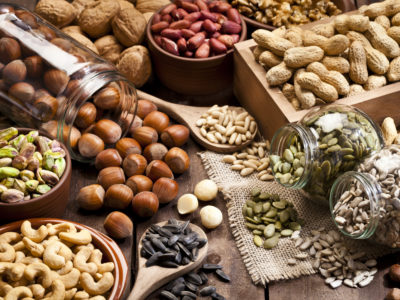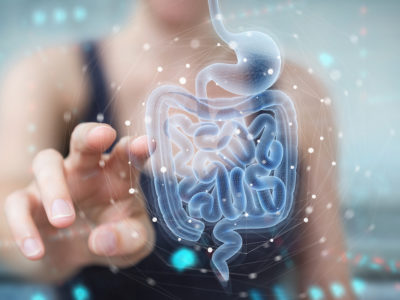A few days ago, we published an article about what a low FODMAP diet can do for those with digestive issues — specifically IBS, but not excluding diverticulitis and other forms of leaky gut. The research in favor of a low FODMAP diet for IBS sufferers is pretty overwhelming.
The main deterrent for most people is that it seems impossible to live a life without consuming FODMAP foods. They’re not only incredibly common, they’re foods that people are advised to eat when they don’t have inflammatory gut conditions, like IBS, Crohn’s disease, and colitis.
Like wheat, garlic, onions, legumes, etc.
The first step in determining whether or not a low FODMAP diet could assist you with chronic tummy troubles is to find out why you’re having chronic tummy troubles. Adhering to this diet when you don’t have a diagnosable ailment can actually harm you by restricting the nutrients your body is meant to get.
Then follow the steps in our previous article to start determining which foods are the main agitators.
Today, we’re going to look at why FODMAPs can cause discomfort and unease in IBS sufferers.
Digestible Science
FODMAP molecules (remember, FODMAP stands for Fermentable Oligo-, Di-, Mono-saccharides And Polyols) affect two things in your bowel primarily: liquid levels and intestinal gas.
When FODMAP molecules enter the gut, they draw more fluid with them into the bowel. They are also fermented more quickly by the bacteria in your colon. As their ferment more rapidly, more gas is produced, which leads to the bloating feeling that people with gut conditions reference when they experience high FODMAP discomfort.
Not only does bloating cause malaise, it also changes the contraction pattern of the walls of your bowels.
That’s why some people experience diarrhea and some experience constipation — increased movement forward signals the rapid wall contractions and rush of diarrhea. Conversely, slower movement through the bowel leads to constipation.
And don’t forget, IBS and other gut disorders are typically characterized by abnormal or variant levels of bacteria in the digestive tract. That means that a person with a standard variety of gut flora may not have a reaction at all, let alone a severe one, to high FODMAP foods.
Depending on the kind of bacteria in the gut, you may experience higher gas quantities, or excessive gas in the small bowel due to bacterial overgrowth in the small intestine.
Why Low FODMAP Diets Help
By either substituting food that you normally eat with alternatives containing low FODMAPS, or sugars that are more easily digested, bloating, gas, and bowel disruptions can be tamed.
This is because the digestive system is no longer exposed to sugars it can easily and quickly ferment, which as we’ve gone over, causes painful gas and bloating.
It’s also because the bacteria in your gut love feast on these sugars, and if what most of what you’re eating is high in FODMAPs, that’s the majority of the food your gut bacteria is eating. The more the bacteria get fed, the more you pull water into your intestines.
The result?
Cramping, bloating, diarrhea, gas, stomach rumbles, etc.
Especially if the disorder you have means that your body doesn’t produce the right enzymes to break down FODMAPs.
For example, most of us can process galacto-oligosaccharides and fructans (FODMAPs). What that means is, we produce the enzymes that can break those molecules down into their subunits, and either absorb them or send them through the rest of the digestive tract as waste.
If your body doesn’t produce those enzymes, you’re in big trouble eating FODMAPs.
No two bodies are alike — some may produce enough amylase to process a high quantity of starch, and starch eaters may experience no discomfort. But if it doesn’t… once the maltose from the starch reaches the colon, the colon will be overwhelmed.
Restricting your access to molecules that your body can’t process will prevent your digestive system from short-circuiting, so to speak, and messing with the plumbing by either distending, clogging, or rapid expulsion.
It’s crucial that you learn enough about your own body to either experiment safely, or consult a dietician.
You May Also Like…




